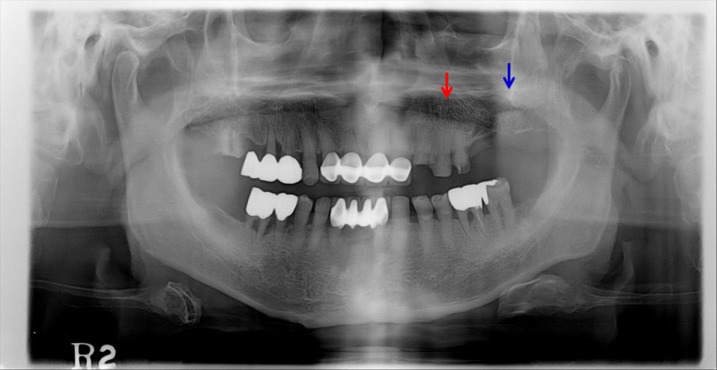J Dent Anesth Pain Med.
2017 Jun;17(2):143-147. 10.17245/jdapm.2017.17.2.143.
Delayed bleeding after implant surgery in patients taking novel oral anticoagulants: a case report
- Affiliations
-
- 1Department of Advanced General Dentistry, Yonsei University, Seoul, Korea. wonse@yuhs.ac
- KMID: 2384477
- DOI: http://doi.org/10.17245/jdapm.2017.17.2.143
Abstract
- The use of novel oral anticoagulants (NOACs) has increased in recent times in an effort to overcome the shortcomings of warfarin. They are being used primarily for the prevention of thrombosis caused by atrial fibrillation and offer the advantages of having fewer drug interactions than warfarin, no dietary restrictions, and no requirement for regular blood tests. Although there is reportedly less postoperative bleeding even if the drug is not discontinued during procedures that can cause local bleeding, such as dental procedures, no well-designed clinical studies have assessed postoperative bleeding associated with the use of these drugs. This article reports a case of a 74-year-old male patient who was taking rivaroxaban. The patient underwent a dental implant procedure after discontinuing rivaroxaban for one day and subsequently suffered delayed bleeding on postoperative day 6. Accordingly, this article also reports that the use of NOACs may also lead to delayed bleeding.
Keyword
MeSH Terms
Figure
Reference
-
1. Jhonston S. An evidence summary of the management of patient taking direct oral anticoagulants (DOACs) undergoing dental surgery. Int J Oral Maxillofac Surg. 2016; 45:618–630. PMID: 26774397.2. Elad S, Marshall K, Meyerowitz C, Connolly G. Novel anticoagulants: general overview and practical considerations for dental practitioners. Oral Dis. 2016; 22:23–32. PMID: 26386350.
Article3. Breik O, Cheng A, Sambrook P, Goss A. Protocol in managing oral surgical patients taking dabigatran. Aust Dent J. 2014; 59:296–301. PMID: 24889878.
Article4. Romond KK, Miller CS, Henry RG. Dental management considerations for a patient taking dabigatran etexilate: a case report. Oral Surg Oral Med Oral Pathol Oral Radiol. 2013; 116:e191–e195. PMID: 23850368.
Article5. Constantinides F, Rizzo R, Pascazio L, Maglione M. Managing patients taking novel oral anticoagulants(NOAs) in dentistry: a discussion paper on clinical implications. BMC Oral Health. 2016; 16:5. PMID: 26822674.
Article6. Firriolo FJ, Hupp WS. Beyond warfarin: the new generation of oral anticoagulants and their implications for the management of dental patients. Oral Surg Oral Med Oral Pathol Oral Radiol. 2012; 113:431–441. PMID: 22668425.
Article7. Hong CH, Islam I. Anti-thrombotic Therapy: Implications for Invasive Outpatient Procedures in Dentistry. J Blood Disorder Transfus. 2013; 4:166.8. Gómez-Moreno G, Aguilar-Salvatierra A, Fernández-Cejas E, Delgado-Ruiz RA, Markovic A, Calvo-Guirado JL. Dental implant surgery in patients in treatment with the anticoagulant oral rivaroxaban. Clin Oral Implants Res. 2016; 27:730–733. PMID: 26073481.
Article9. Hanken H, Groebe A, Heiland M, Smeets R, Kluwe L, Wikner K, et al. Postoperative bleeding risk for oral surgery under continued rivaroxaban anticoagulant therapy. Clin Oral Investig. 2016; 20:1279–1282.
Article
- Full Text Links
- Actions
-
Cited
- CITED
-
- Close
- Share
- Similar articles
-
- Hemoptysis in Quadriplegia with Atrial Fibrillation Who Was Taking Edoxaban: a Case Report
- Post-extraction bleeding in patients on direct oral anticoagulants
- Guidance for Endoscopic Procedures in Patients Taking Novel Oral Anticoagulants
- Warfarin-induced Mesenteric Bleeding and Small Bowel Necrosis
- Life-Threatening Upper Airway Obstruction Caused by Delayed Hematoma Occurring 8 Days Post-Thyroidectomy



